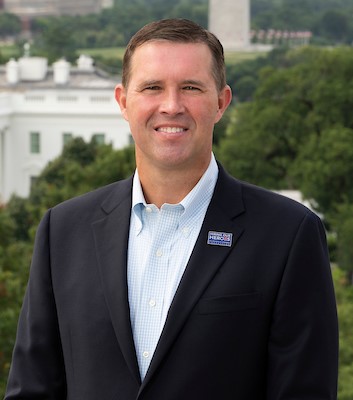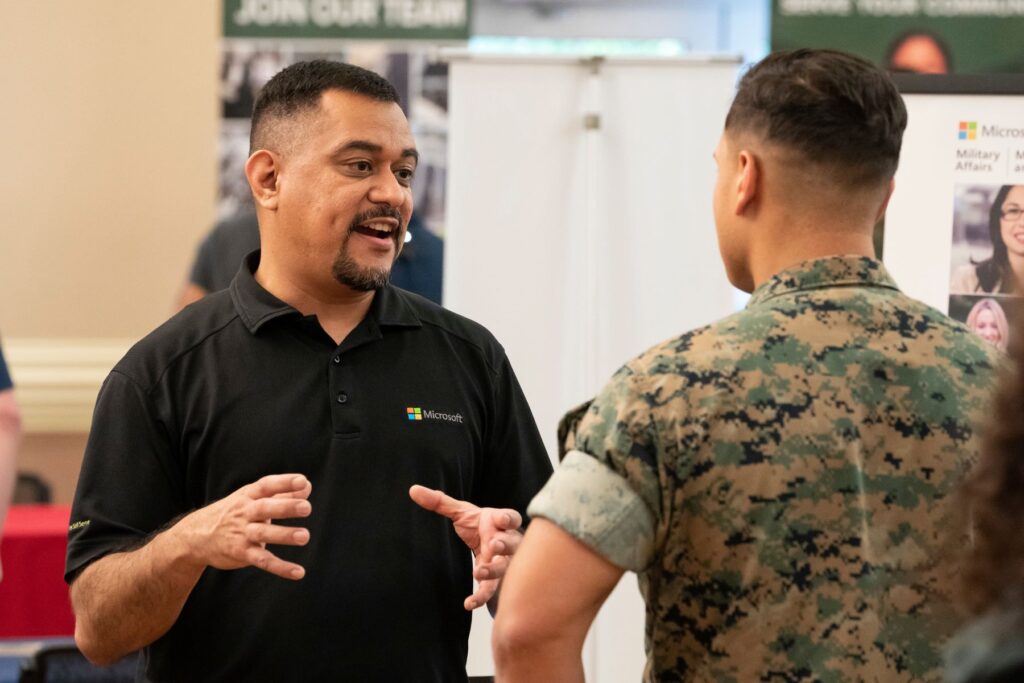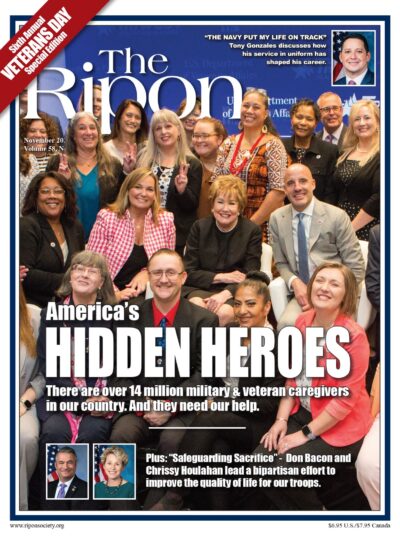
Military service creates unparalleled opportunities for young Americans. Whether you serve in the infantry, fix jets, or provide supportive services, the military teaches young men and women how to think critically, be effective leaders, embrace change, and work as a team. These skillsets are becoming more and more valuable to corporate America.
Over the last decade, our country has seen an incredible shift in the nature of work. Gone are the days when a worker learns a skill and relies upon that skill for an entire career. Modern workers, according to the World Economic Forum’s Future of Jobs Report, must be analytical and possess the self-efficacy skills (e.g., resiliency and motivation) to be successful. Those skills will be increasingly important as AI and machine learning transform the workplace.
Yet most transitioning service members struggle with post-military careers, notwithstanding their undeniable skillsets. As noted in a recent report by the Clearinghouse for Military Family Readiness at Penn State, one-third of veterans are underemployed and underutilizing their military-related skills. LinkedIn’s Veteran Opportunity Report put it more bluntly, saying that companies undervalue military experience with most veterans getting “hired into roles that do not take full advantage of their skills and professional military experience.”
Most transitioning service members struggle with post-military careers, notwithstanding their undeniable skillsets. One-third of veterans are underemployed and underutilizing their military-related skills.
Why does this happen? The answer is quite simple: most companies and their hiring managers lack a basic understanding of military service, nor do they have a good way of evaluating military talent and how it will perform in the workplace.
Think about it this way: anyone can say they are a good leader on their resume. They also can reference their problem-solving skills and resiliency, but those claims mean little to a recruiter or hiring manager with little or no connection to the military. And, given that less than one percent of Americans serve on active duty, it is easy to understand why so many veterans are underemployed and undervalued.
That is why the Department of Defense SkillBridge program is so important. The program —which can take the form of internships, apprenticeships, or industry training — provides transitioning military members with civilian work experience in high-demand fields just before their transition to civilian employment. It allows them to showcase their skillset to companies and, more importantly, gives companies a chance to evaluate those skills in the workplace.
At Hiring Our Heroes, we are honored to run the nation’s largest SkillBridge Program, known as the Corporate Fellows Program. That program places transitioning service members in a 12-week internship with a host company of their choice. Over the last decade, we have placed more than 12,000 service members with thousands of companies across the country.

That is why the DoD’s SkillBridge program is so important. The program provides transitioning military members with civilian work experience in high-demand fields just before their transition to civilian employment.
The results speak for themselves. Last year alone, that program placed more than 2,400 service members with a host company, with 87 percent receiving a job offer and an average salary of $114,508. We know that HOH’s SkillBridge fellows are taking a job for the right reason (e.g., it was a good job with great pay), as compared to non-participants who were two times more likely to accept a job for a negative reason (e.g., I had no other choice and needed a paycheck).
Perhaps of greater importance, our data shows that HOH SkillBridge participants are more likely to recommend military service to others, whereas nonparticipants were 56 percent more likely to not recommend service. This is especially true among veterans under the age of 30, who are 64 percent more likely to recommend service if they participated in a SkillBridge program as compared to nonparticipants.
Unfortunately, not all transitioning service members are able to participate in SkillBridge. Unlike other enticements meant to support economic opportunity for veterans such as the GI Bill, SkillBridge participation is not guaranteed. It depends on the service member’s commander, who must decide between unit staffing requirements and workload since no backfills are authorized under the program. In other words, commanders are put in the unenviable position of deciding between mission and the service member’s future success. It shouldn’t be that way.
As we look to the future, SkillBridge eligibility must be expanded to allow all service members the opportunity to participate. Whether that participation occurs on active duty or immediately after their transition is of no matter. Not only will this help guarantee the long-term economic opportunity that our veterans deserve while, in the process, delivering highly skilled workers to American business, but it also will ensure that we are able to recruit the next generation of all volunteers. That is a win-win-win.
Eric Eversole is the president of Hiring Our Heroes, a program of the U.S. Chamber of Commerce Foundation, and a vice president at the U.S. Chamber of Commerce.




